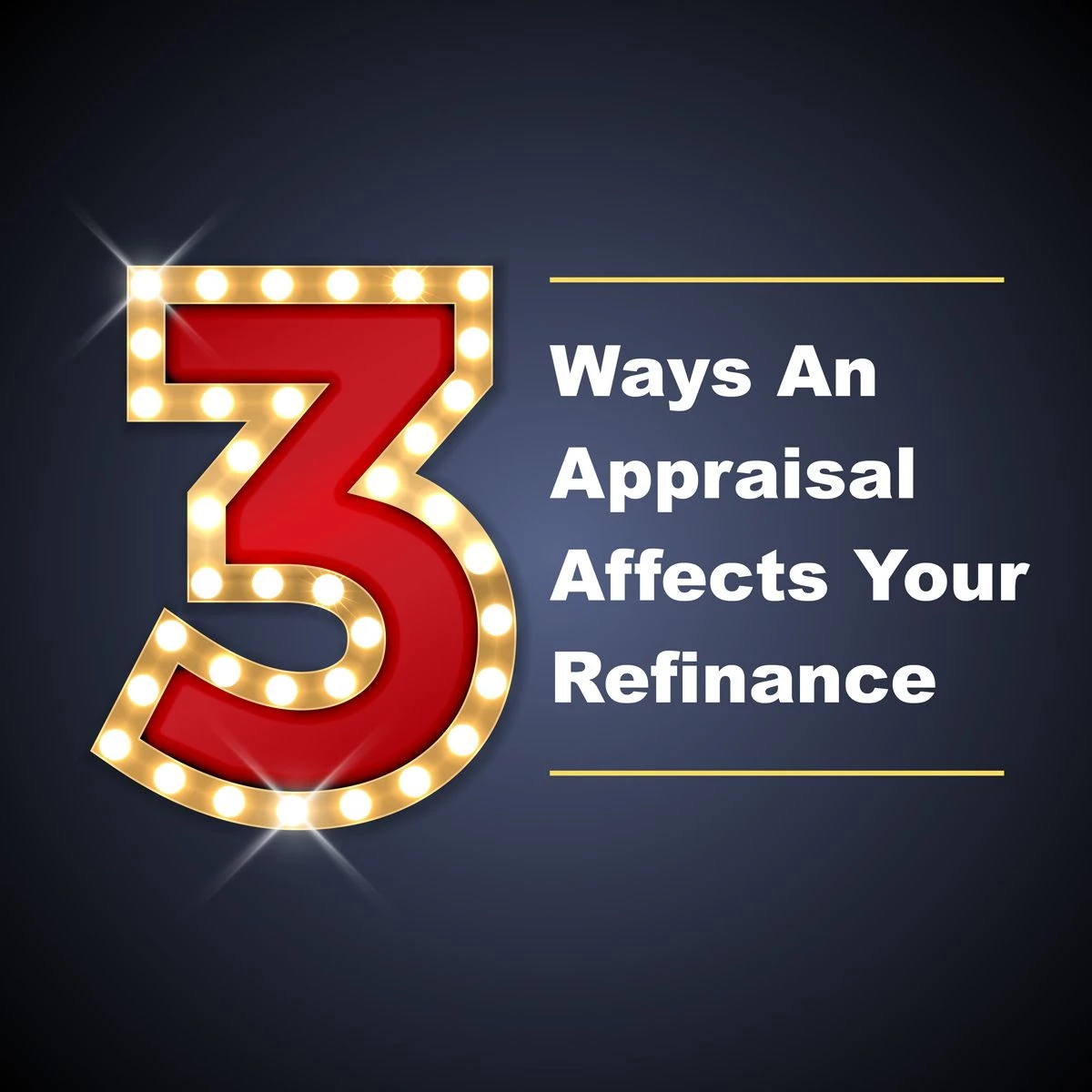- RATES: Refinance rates are dependent on the value of your home. If an appraisal shows that your home value has increased, you may be eligible for an even better interest rate than anticipated, or be able to get more cash out in a refinancing. So, for example, a 75% loan to value may give you 1/8 better on rate compared to an 80% loan to value. The lower the loan to value, the more equity you have on your home, thus lowering the risk to the lender. The loan-to-value (LTV) ratio is an assessment of lending risk that financial institutions and other lenders examine before approving a mortgage.
- PROPERTY CONDITION: Appraisers are trained to note all readily observable faults and repairs that need carrying out. For example, if your home's roofing is worn out or your kitchen needs updating, such conditions will be noted in the appraiser's report. The condition of a property is very important in appraisals. Homes in poor condition are worth less than recently sold comparable homes in good condition. Moreover if there are any safety issues noted, appraiser will condition repairs. Unless these repairs are completed, your property will not be approvable.
- PMI: If the property value comes in to where your loan to value is above 80%, the lender will require you to pay for Private Mortgage Insurance (PMI). PMI is a type of insurance that lenders require for certain mortgages with high LTV ratios. Lenders always accept some level of risk with mortgages. However, PMI can help lower the risk that some mortgages bring. Although you pay for PMI as the borrower, this insurance doesn't protect you. Instead, it protects the lender. If you default on your mortgage, PMI pays part of the remaining balance of the loan to the lender.
Therefore, given the importance of your home’s appraised value, you want to present your house in a positive light. You should make sure your home is clean and free of clutter so the appraiser can easily see all the important features. You don’t need to make major improvements before an appraisal, but you might want to apply a fresh coat of paint and make some inexpensive repairs.
Here are the list of things you may want to check into before scheduling for an appraisal
- Peeling paint in homes built before 1978.
- Unpainted downspouts and broken rain gutters.
- Rotting out-building in need of demolition.
- Exterior doors that do not properly close and open.
- Exposed wiring and uncovered junction boxes
- Major plumbing issues and leaks.
- Inoperable HVAC systems.
- Water heater must be double strapped.
- Gas stove connected to gas line and is in good working order.
- Smoke detectors and carbon monoxide are properly installed and working.
- Leaky or defective roofs, roofs with a life expectancy of less than 3 years, composition over shake.
- Active and visible pest infestation.
- Rotting window sills, eaves, and support columns on a porch.
- Missing appliances that usually are sold with a home such as a stove.
- Bedrooms without minimize-sized windows or bedroom windows with bars that do not release.
- Foundation or structural defects
- Wet basements
- Evidence of standing water in the crawl space.
- Inoperable kitchen appliances.
- Empty swimming pools without a working pump and pools with mosquito fish.
- Ripped screens.
- No pressure relief valve on water heater.
- Leaning / broken fence.
- There has to be flooring - carpet, tile, wood, laminate, etc. Floor cannot just be a slab of cement or ground.


